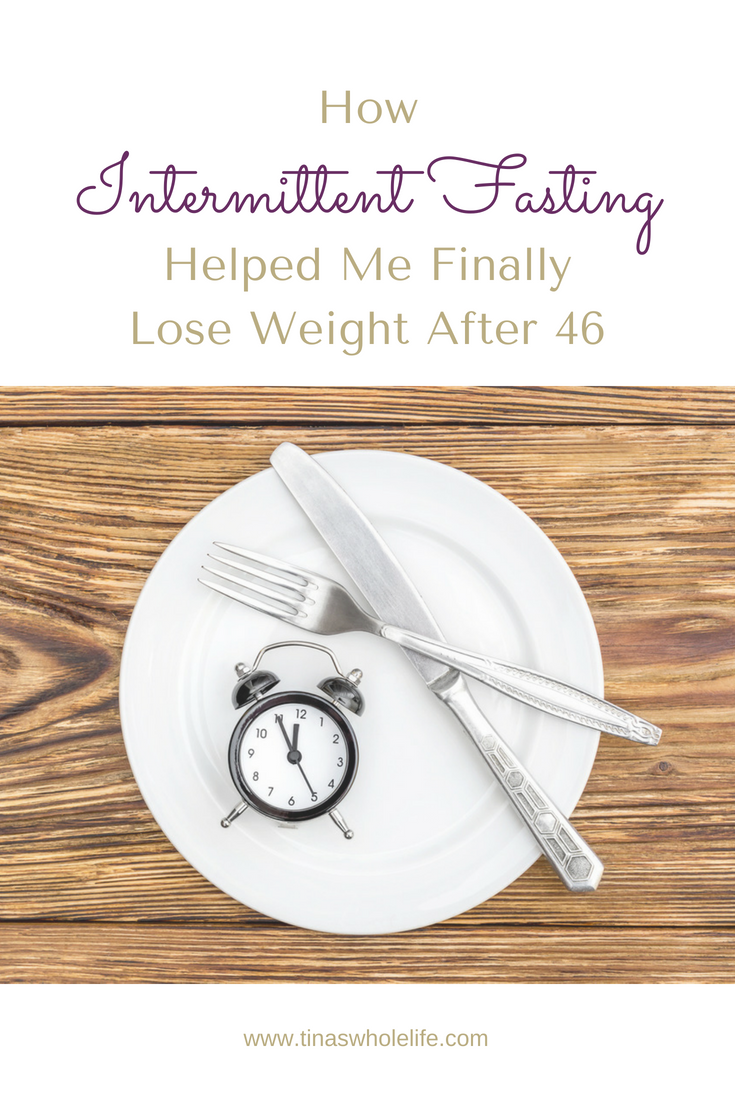How Intermittent Fasting Helped Me Finally Lose Weight After 46
I don’t know about you, but I’ve been hearing so much about intermittent fasting this last year that I had to check it out and boy am I glad I did!
In the last few months I’ve been experimenting with the keto diet and intermittent fasting but I really attribute my ability to lose weight and keep it off to the intermittent fasting I’ve implemented in my life.
It’s so fascinating to me how things come to you when you need them and as you know if you have been following my journey I was diagnosed with high blood pressure in May and I’ve been very focused on lowering it through diet, exercise and weight loss. And although I was super conscientious of my diet, and I was walking my 10k steps each day I was still really struggling to lose any weight. I would yo-yo up and down the same 4 pounds over and over and I was getting so frustrated!
That’s when the concept of intermittent fasting entered (and drastically changed) my life.
So the basic concept of intermittent fasting is that when we allow our digestive systems to rest from digesting food it can work on the basic functions of the body like repairing damaged cells, healing muscle tissue, regulating hormones and everything else that the body does in it’s regular course of a day. The problem arises when we are constantly bogging down the body with food to digest, because that will take precedence to all other functions of the body.
We Eat Way Too Much
In my research I learned that the average human being in the western world eats WAY too much and too often. As a matter of fact if you are struggling with weight you can’t lose (that is not related to a medical condition or medication you are taking) it’s probably a good indicator that you can reduce your current consumption of food. The problem occurs when we have blood sugar spikes and crashes that we think we need to eat and we experience false hunger so we are trapped in a cycle of overeating and weight gain. If this is what is holding you back I would suggest looking more at reducing carb consumption to help with this problem and increasing healthy fat intake so level your blood sugars. Start IF slowly and don’t push it too hard. Start slowly implementing over time so you don’t tax your body, but keep at it until it feels comfortable.
Basics
IF guidelines suggest that women should fast between 12 to 16 hours when doing it daily. I opted for 14 because I need to be careful not to overly tax my adrenals, although I have gone longer when my body is ok with it. As I said, ease into IF by stretching your breakfast a half hour later every few days until you reach your desired time window. Let your body dictate how fast you go, don’t just jump into it and freak your poor body out! Adding stress to the body doesn’t help it function better so listen to what it is telling you and go easy with it. Your results will be better in the long run.
How To IF For Your Life
I designed my fast around my families eating schedule. I am typically hungrier during the day than at night and don’t have trouble with night snacking so I opted to have my dinner be my last meal of the day and I don’t eat after 6pm.
I get up about 6 am and drink water in the morning and go for a walk and then get into my morning routine which includes a keto coffee about 8:30 am. This is my 14.5 hour mark and when I break my fast. Then my eating window is from then until 6 pm. Many IF practitioners will tell you that it’s ok to eat whenever you feel hungry during that eating window, but I follow the advice that you should eat a meal and then wait about 4 hours until you eat again. This means I eat 3 meals only in a day and no snacks. The theory is that when you eat, your insulin levels rise and when insulin is present in the body it goes from fat burning mode to fat storage mode. So if you are grazing all day your body never gets back into fat burning mode until you begin your evening fast. But, if you wait 4 hours in between meals you can also burn body fat for fuel during the day and maximize your fat burning time frame.
Many experts suggest that 2 to 3 meals a day are sufficient, just keep in mind that if you eat less than 3 meals a day you will need to be very conscientious about getting all of your nutrition in those meals. For me, it’s easier to stick with 3 meals a day because I would need to stuff 1500 calories into 2 meals and that is just too much food for one sitting for me.
Which brings me to intermittent fasting and nutrition. It’s really important that you don’t just cut your meals down and eat crappy food or only intake 800 calories a day when your body needs more to survive. Doing this will only tax your body more, shift it into survival mode, and your metabolism will slow down as it goes into starvation mode. This you do not want.
IF is not starving your body, it is feeding your body what it needs but being conscientious of working with your natural body rhythms to assist it in performing at its highest level.
So what do you think? Is it worth giving it a try?
Like I said, at 46 I was unable to lose any weight even when I was doing all the right things. This one tweak really helped boost my metabolism and get things that were out of whack back into working order. I’m currently REALLY close to hitting my first 10 pounds lost and I’m ecstatic!
Let me know if you try this and it works for you. I’d love to hear how you are doing and what you have found it to help in your life!

